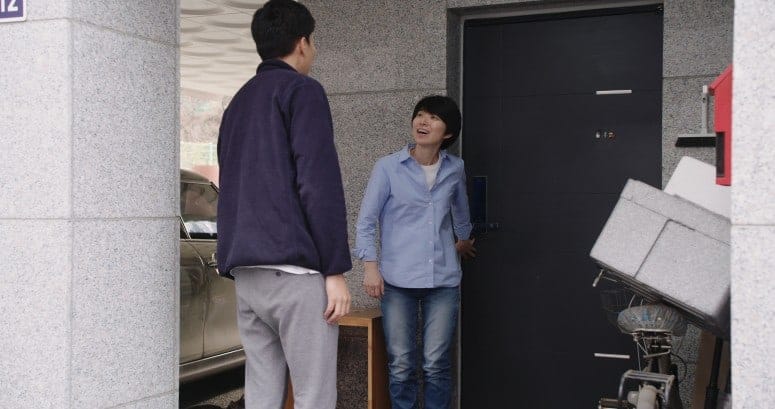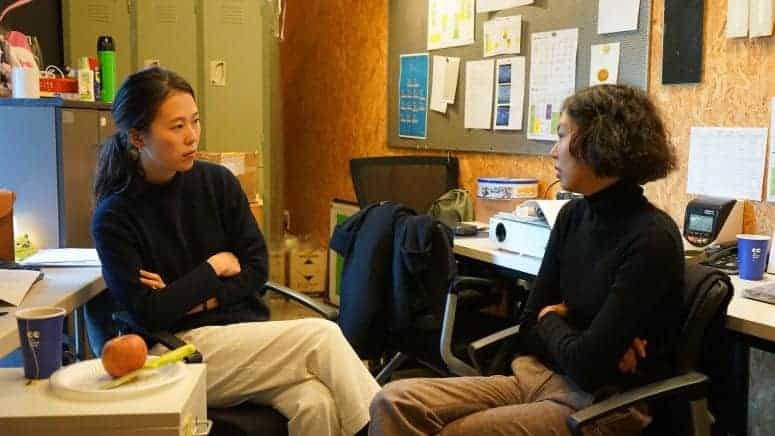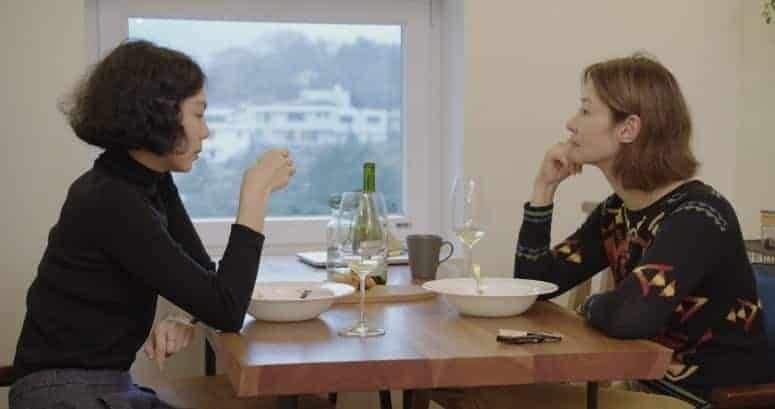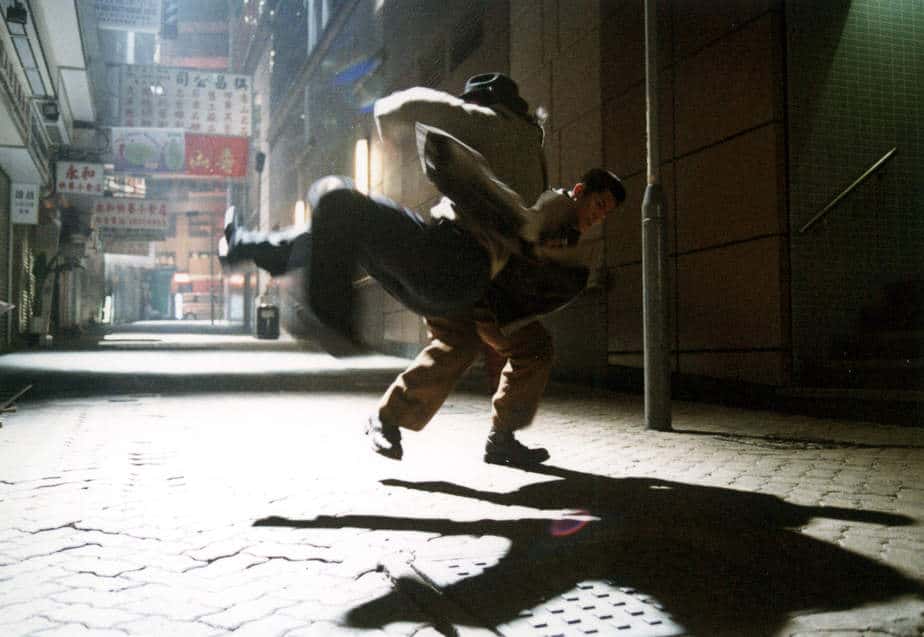Hong Sang-soo was awarded the Silver Bear for Best Director at the 70th Berlinale Film Festival for his 24rd feature fiction film “The Woman Who Ran”, a story revolving around Gam-hee (Kim Min-hee), a young florist who visits two of her long-time friends at the outskirts of Seoul, and also accidentally meets the third one on her excursion to an arthouse exhibition.

It's in many ways a classical Hong Sang-soo movie built around people immersed in conversations, enjoying drinks, food and beautiful landscapes. So there is plenty of chatter in “The Woman Who Ran” but no traditional soju-drinking, although two people won't be sober for a long time after downing a bottle of makgeolli. But the true novelty is that Hong Sang-soo has made a very female movie, his first of the kind, and it is a surprisingly effortless work that could have easily gone wrong considering his minimalist approach to film-making.
All male characters are turned into a part of scenography of sorts playing episodic roles, but there is a danger of interpreting too much into it. The film can't be really read as feminist, and it was rather made as an experiment by a male filmmaker asking himself about what would happen if men were talking less and if they were pushed in the position of being mere obstacles in the communication between women. Also in terms of how the dialogues were built, there is occasionally something really awkward about how women talk, which gives “The Woman Who Ran” a touch of a stage play.

(KOR 2019) Berlinale Competition © Jeonwonsa Film Co. Productions
When Gam-hee visits her first friend Young-soon (Seo Young-hwa), they talk more about the quality of good meat that the guest has brought than about one's marriage and the other's recent divorce. The little of conversation that evolves around their relationships, one allegedly happy and the other dissolved, is painted both with obscurity and humour. Instead of turning men into a topic, the interest wanders towards the question surrounding the eating and drinking habits, in the presence of Young-ji (Lee Eun-mi) a woman who's sharing the apartment with Young-soon and who's serving them and cooking food. Their fun-time gets disrupted by a neighbor (Shin Suk-ho) who calls to demand of the two women to stop feeding local cats, because his wife appears to have Ailurophobia. This is the funniest dialogue in “The Woman Who Ran” with the unforgettable appearance by one of the “robber cats” who steals the show, but the “Cat man” is certainly not the most annoying male character in the film.
Gam-hee's journey to the three different hilly landscapes and encounters with three friends very different in character has only one thing in common – the alleged motive as to why she suddenly decided to come and visit. She repeats the same thing, every time in a different manner, and there is a robotic feeling developing to it along the film. It's allegedly the first time in the past five years that she's spent time apart from her husband, who decided to depart on a business trip without her. Whatever the reason for her excursion to the past might be, there is a doubt rising as to if she really is married, and if so, if she cultivates real emotions for the man who is telling her that truly happy people should never part.

The second visit takes Gam-hee to Su-young (Song Seon-mi), a chatty pilates teacher who's in love with her still married neighbor, and stalked by a much younger man (Ha Sung-guk) with whom she had a one night stand. Gam-hee also slips in the role of a stalker by watching Su-young's argument with the youth over the security cam, presenting us with a true moment of doubt at who she claims to be. It almost feels like she's absorbing other people's lives to gather experience and fill in the emotional gaps.
The final chapter of Gam-hee's encounter with the past is particularly interesting because it deals with the overestimated self-importance of a famous writer (as a man) and his wife Woo-jin's (Kim Sae-Byuk) realization that her marriage is the epitome of boredom. At the same time, boredom is the only reason she's hit by guilty conscience when she sees Gam-hee, whose boyfriend and now husband, she stole many years ago. The dialogue between the two women is the most credulous of all other in the film, as it doesn't stretch past their feelings about what had happened in the past.
Hong Sang-soo's partner in life (?) and muse Kim Min-hee, who was awarded Best Actress in Berlin for “On The Beach at Night Alone” in 2017, plays her role of the introverted Gam-hee with sweet goofiness, keeping her mysterious until the end.















